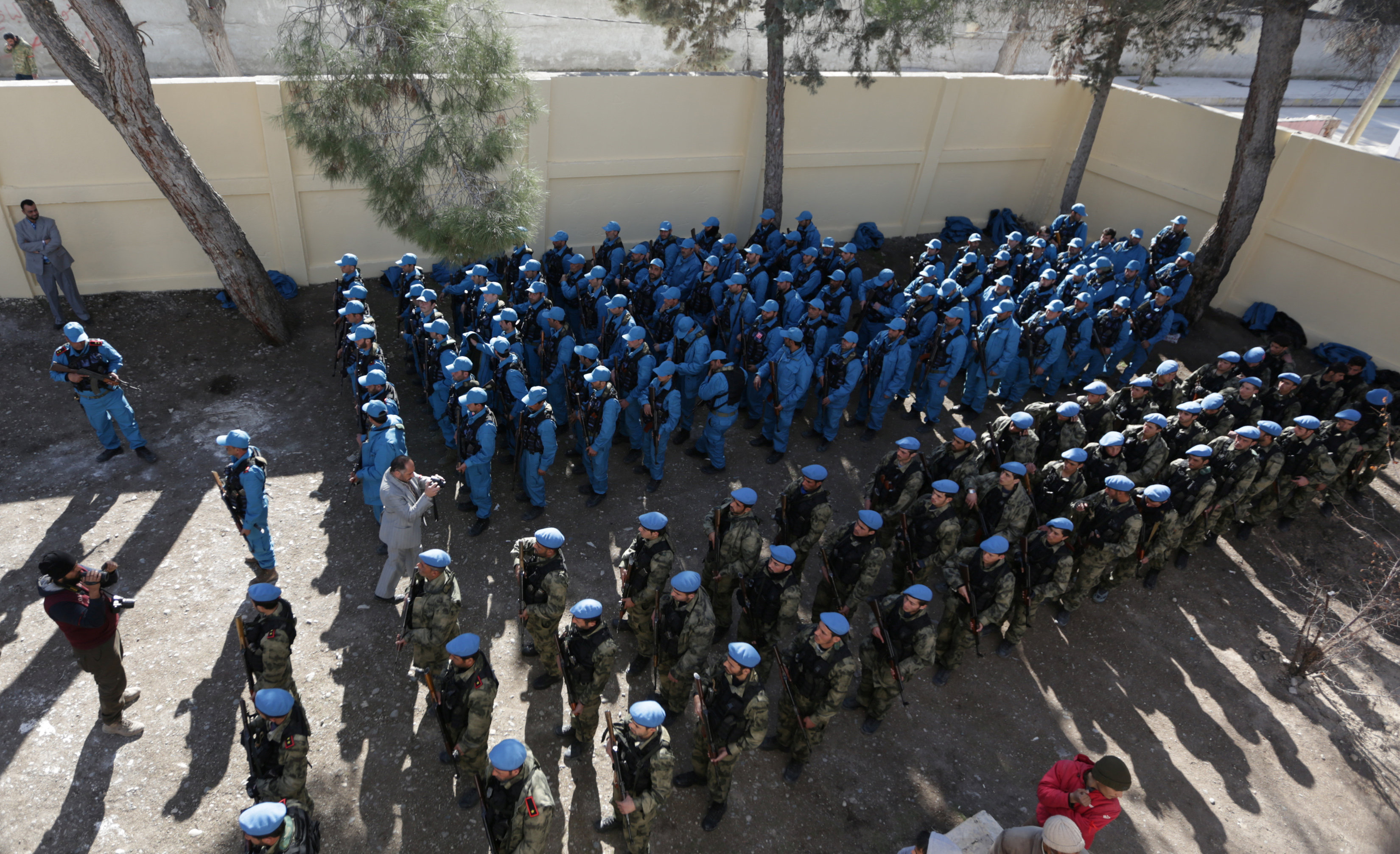
By Maher Chmaytelli
BAGHDAD (Reuters) – The United Nations said on Tuesday it is “racing against the clock” to prepare emergency aid for hundreds of thousands of endangered civilians in Mosul with an Iraqi army offensive looming to oust Islamic State from the western half of the city.
Iraqi officials said on Monday government forces had taken complete control of eastern Mosul, 100 days after the start of their U.S.-backed campaign to retake Iraq’s second largest city from IS insurgents who seized it in 2014.
U.N. officials estimate 750,000 people remain in Mosul west of the Tigris River that flows through the last remaining major urban center held by Islamic State in Iraq, after a series of government counter-offensives in the country’s north and west.
The west side could prove more complicated to take than the east as it is crisscrossed by streets too narrow for armored vehicles, allowing IS militants to hide among civilians.
The Sunni Muslim jihadists are expected to put up a fierce fight as they are cornered in a shrinking area of Mosul.
“We are racing against the clock to prepare for this,” U.N. humanitarian coordinator Lise Grande told Reuters. Humanitarian agencies were setting up displaced people camps accessible from western Mosul and pre-positioning supplies in them, she said.
“The reports from inside western Mosul are distressing,” she said in a separate statement. “Prices of basic food and supplies are soaring…Many families without income are eating only once a day. Others are being forced to burn furniture to stay warm.”
Government forces on Tuesday finished clearing the last eastern pocket held by militants – the northern suburb of Rashidiya, Major General Najm al-Jubbouri, commander of the northern front, told the local Mosuliya TV channel.
“The northern units completed the liberation of Rashidiya, the last stronghold of Daesh on the left bank,” he said, using one of the Arabic acronyms for Islamic State.
IS LAUNCHED “CALIPHATE” FROM MOSUL IN 2014
It was from Mosul’s Grand Mosque, on the western side, that Islamic State leader Abu Bakr al-Baghdadi declared a “caliphate” under his rule in 2014, spanning large tracts of Iraq and Syria.
Mosul has been the largest city under IS control in either country, with a pre-war population of about two million.
A U.S.-led coalition is providing air and ground support to Iraqi forces in the battle that began on Oct. 17, the biggest in Iraq since the U.S.-led invasion of 2003.
More than 100,000 Iraqi troops, members of regional Kurdish security forces and Shi’ite Muslim paramilitaries known as Popular Mobilisation are participating in the offensive.
Iraqi forces estimated the number of militants inside Mosul at 5,000-6,000 at the start of operations three months
ago, and say 3,300 have been killed in the fighting since.
Military preparations to recapture western Mosul have begun, with Popular Mobilisation militia preparing an operation in “the next two-three days” to pave the way for the main offensive on the western bank of the Tigris, the overall campaign commander, Lieutenant General Abdul Ameer Yarallah, told Mosuliya TV.
Popular Mobilisation is a coalition of predominantly Iranian-trained Shi’ite groups formed in 2014 to join the fightback against Islamic State. It became an official part of the Iraqi armed forces last year.
More than 160,000 civilians have been displaced since the start of the offensive, U.N. officials say. Medical and humanitarian agencies estimate the total number of dead and wounded – both civilian and military – at several thousand.
Islamic State has “continued to attack those fleeing or attempting to flee areas that are controlled by it”, U.N. human rights spokeswoman Ravina Shamdasani said in Geneva on Tuesday, and was also shelling districts retaken by the army.
The militants blew up a landmark hotel in western Mosul on
Friday in an apparent attempt to prevent advancing Iraqi forces
from using it as a base or a sniper position once fighting shifts west of the Tigris. The Mosul Hotel, shaped like a stepped pyramid, stands close to the river.
State television said the army had set up temporary bridges across the Tigris south of the city limits to allow troops to cross in preparation for the offensive on western districts.
Mosul’s five permanent bridges across the Tigris have
been damaged by U.S.-led air strikes, and IS blew up two.
(Additional reporting by Ahmed Rasheed in Baghdad and Tom Miles in Geneva; editing by Mark Heinrich)









